The Accountability International Leadership Award is intended to be presented to persons or organisations who play an exceptional role in promoting accountability in the international response to human rights and inclusive sustainable development.
The long-term objective of the Accountability International Leadership Award is that of our organisation as whole: to contribute to a world where there is accountability for the lives, human rights and wellbeing of all persons, across all spheres of society.
As a watchdog ourselves, our mission is to amplify the diverse voices of marginalised communities, by ensuring that the voices of the community lead all our work, and as such we are interested in identifying and amplifying the voices and actions of those leaders who are accountable to the most marginalised through this award.
We hope to contribute to the visibility of accountable leadership. We wish to showcase and demonstrate that accountable leadership is possible, and to provide examples to the public for them to learn from and follow.
The award aims to recognise not only people and organisations who work on accountability, but who they themselves work in an accountable manner. We are looking for true accountability ambassadors who work on increasing accountability and who embody accountability themselves, in the way they work.
Read more About The Award Here
The selected candidate will work in close coordination with the Protection Coordinators for Africa, and will also provide support to other relevant staff across other programme areas in relation to our work in the region, as required. The fellowship will be for nine months and based in Front Line Defenders’ office in Blackrock, Co. Dublin, Ireland.
The fellowship is designed to provide training and practical work experience in an international non-governmental organisation to recent graduates seeking a career in human rights. The fellow will learn about Human Rights Defenders; the UN Declaration on Human Rights Defenders; the mandate of the UN Special Rapporteur; the role of Front Line Defenders and other national and international organisations in the support and protection of human rights defenders; the specific situation and challenges facing human rights defenders in the region. They will be expected to participate in induction, periodic reviews, weekly team and case meetings, and relevant out-of-hours events.
The successful candidate will be able to draft well and have good analytical skills. They will have some knowledge of the UN system and international and human rights law. They must be able to work in both English and French. Please note that we cannot make exceptions to the language requirement.
They will be able to work on own initiative and as a member of a team. They will have good oral and written communication skills and be computer literate. They will be flexible and cooperative. Previous work experience with organisations working in the field of human rights is desirable.
Basic terms of reference:
– Provide support to the Protection Coordinators working on Africa, including dealing with queries and correspondence with human rights defenders;
– Input HRD-related information on the Front Line Defenders’ database;
– Undertake research on human rights defenders in countries in the region;
– Compile and draft as requested briefings, country summaries, input to reports, urgent appeals, or other materials;
– Support follow-up on cases taken up by Front Line Defenders;
– Provide support to staff across other programme areas in relation to activities carried out in the region, including in particular in the organisation of and follow-up on trainings;
– Carry out administrative tasks as requested, including the taking of minutes in meetings;
– Provide French language support as necessary;
– Work on other specific projects and tasks relating to human rights defenders as requested.
Please include your CV and cover letter in the same attachment and title it with your last name. Applications which are not in this format may be missed.
Applications should be sent to Ed O’Donovan, Head of Protection, at recruit@frontlinedefenders.org by 18 October 2019. The next Research & Admin Fellowship – Africa will start on 13 January 2020 for a period of nine months.
Front Line Defenders is able to provide a contribution to living costs of €1300 per month. Front Line Defenders will reimburse the successful candidate the cost of their flights to and from Dublin. Please note that the cost of living in Dublin is high and that you may need additional funds to sustain your stay in Ireland. Front Line Defenders will assist with the Irish visa application process if relevant.
Front Line Defenders is an Equal Opportunities Employer and welcomes applications from all sections of the community.
In providing protection and support to human rights defenders, Front Line Defenders and its staff, interns and volunteers are committed to:
Apply here: https://www.
On Saturday, 14 September 2019 was an awesome day for human rights protection. 55 human rights defenders from Nakuru, Nairobi, Kiambu and Kajiado counties Climbed the Beautiful Mount Longonot. The climb was the first in a series of mountain Hikes under the #ClimbForJustice campaign to raise funds to set up a Rights Defenders Centre for wellness, research, creativity and training. All the climbers made it up to the top of My Longonot. This was achieved by determination and team-work by all the climbers. There were no reported accidents/injuries. We thank all comrades who cheered the climbers online and via phone calls.
We take this opportunity to thank all Kenyans who have joined us for this Campaign. Preparations are on high gear for the next climb at William Hills, Kereita on 5th October.
Register to join the next climb.
Call +254716200100
or
Email climb@hrdcoalition.org
or
Support a Climber via Mpesa PAYBILL 810896. Account: Your Name/Climbers Name
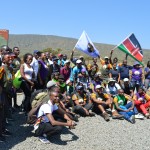
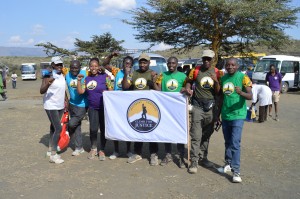
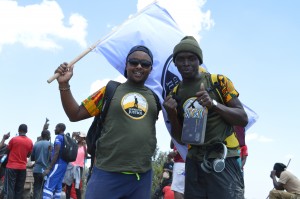
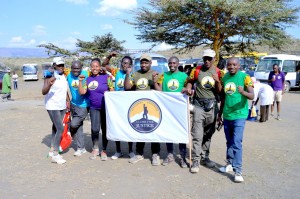
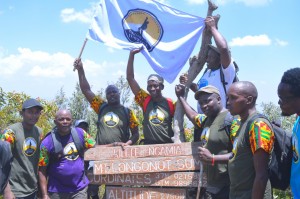
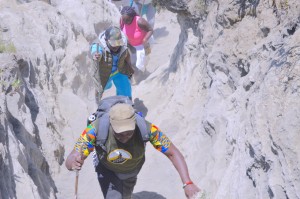
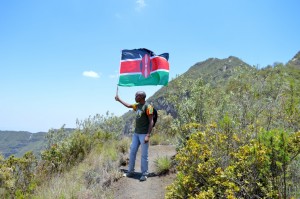
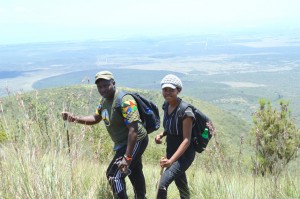
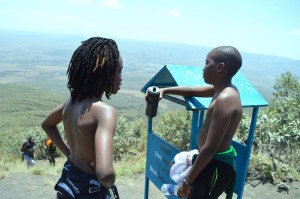
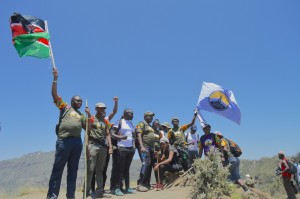
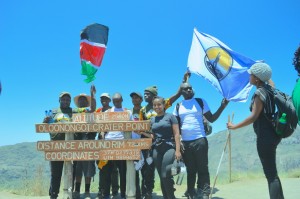
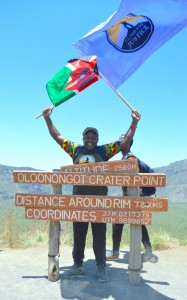
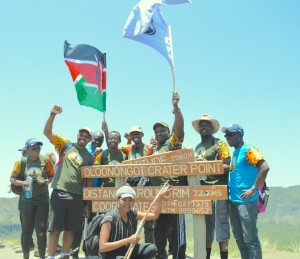
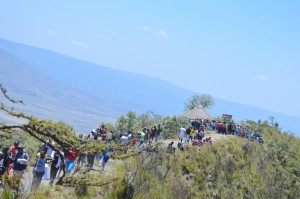
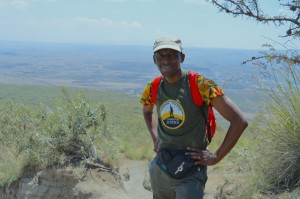
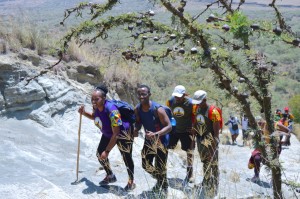
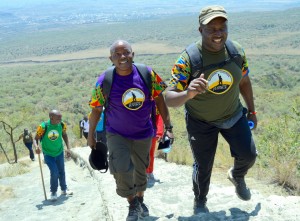
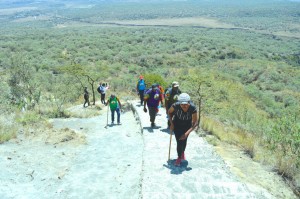
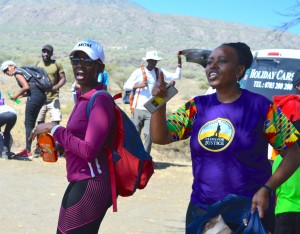
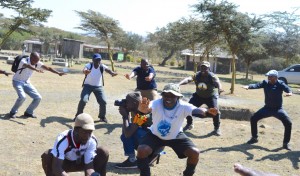
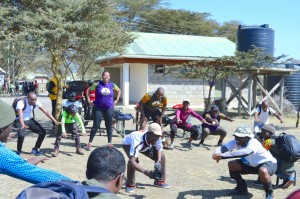
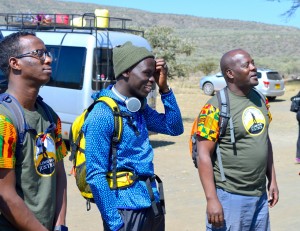
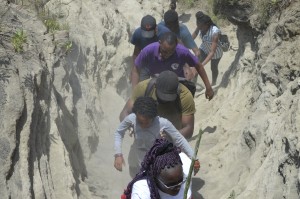
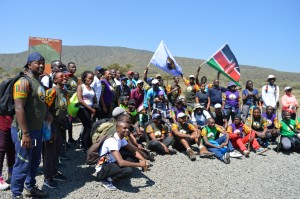


Defenders Coalition has for the last two months been in a process to develop its next 6 years strategic plan. The new plan will not only give the strategy direction for the organization but also human rights defenders approach in executing its new programs.
The process of developing the new Strategic Plan is being spearheaded by Defenders Coalition, our service providers and human rights defenders drawn from various human rights sectors with the guidance of a lead consultant. The development and validation of the new SP is being undertaken. The final SP document will be shared with human rights defenders, partners and other actors after its launch at a date to be announced.
30 Aug 2019
Nairobi,Kenya
DEFENDERS COALITION CONDEMNS THE ENFORCED DISAPPEARANCE AND KILLING OF HUMAN RIGHTS DEFENDER, ESTHER MWIKALI WAMBUA
The United Nations declared 30th August as the day that would be observed globally as International Day for Victims of Enforced Disappearances to raise awareness that enforced disappearance is a crime, should not be used as a tool to deal with conflict and as reminder about the victims and the impact that the disappearance have on the families and communities.
Sadly, the killing of Land Rights Activist Esther Mwikali (57) whose body was discovered on Tuesday 27 August 2019 dumped in a farm near her homestead, other human rights defenders and escalating extra-judicial killings is a reminder that this crime is routinely practiced in Kenya with impunity.
As we mark the International Day of Victims of Enforced Disappearances, the National Coalition of Human Rights Defenders – Kenya (Defenders Coalition) calls on relevant state agencies, more so the National Police Service and Office of Public Prosecutor to bring to an end the culture of enforced disappearances and extra- judicial killing that has creeped into regular policing and settling scores by non-state actors.
Enforced disappearances is a tactic used to subjugate people and put communities in fear and involves kidnapping individuals who speak out against oppression and other injustices. Human Rights Defenders (HRDs) in Kenya have been regular target of enforced disappearance, torture and other traumatising experience which has culminated into deaths. In February 2019 human rights defender Caroline Mwatha of Dandora Justice Centre was disappeared and later found dead. Some arrests were made and individuals charged. Human rights lawyer Willie Kimani together with his client Josephat Mwendwa and their taxi driver Joseph Muiruri were disappeared before their bodies were found dumped at Oldonyo Sabuk in June 2016.
Defenders Coalition strongly condemns the disappearance on Monday, 26th August 2019 and eventual killing of Esther Mwikali. The search party comprising of human rights defenders and local people from Murang’a county found her dead in a thicket. Her eyes had been gouged out and sticks inserted into her private parts. She was killed alongside another individual.
Mwikali was a renowned land rights human rights defender from Mithini, Makuyu, Murang’a County who led other community members to defend their ancestral land from being evicted from a piece of land that was claimed by local tycoons in the area.
Like other HRDs families, Esther and her family were subjected to threats from unknown people as a result of her work. Her community members who are squatters in the area have also been subjected to these threats.
NCHRD-K thus calls on:
For more information or to arrange for interviews contact |Francis Ndegwa| francis@hrdcoalition.org| 0721443397 | Communications Officer at NCHRD-K| www.defenderscoalition.org|
Submitted on 18 July 2019 by:
National Coalition of Human Rights Defenders-Kenya and Defend Defenders (East and Horn of Africa Human Rights Defenders Project)
Introduction
The National Coalition of Human Rights Defenders-Kenya (NCHRD-K), is a Kenyan CSO established in 2007. It works to strengthen the capacity of HRDs to work effectively and reduce their vulnerability to the risk of persecution, including by advocating for a favourable legal and policy environment in Kenya.
DefendDefenders (The East and Horn of Africa Human Rights Defenders Project) is a regional civil society organisation (CSO) established in 2005 and based in Kampala, Uganda. It seeks to strengthen the work of human rights defenders (HRDs) throughout the East and Horn of Africa sub-region by reducing their vulnerability to the risk of persecution and by enhancing their capacity to effectively defend human rights.
In this submission, DefendDefenders and NCHRD-K examine the Government of Kenya’s compliance with its international human rights obligations to create and maintain a safe and enabling environment for HRDs, including civil society. Specifically, we analyse the Government of Kenya’s fulfilment of the rights to freedom of association, peaceful assembly, and expression, and unwarranted restrictions on HRDs since the second cycle of the Universal Periodic Review (UPR) in 2015. To this end, we assess Kenya’s implementation of recommendations received during the second UPR cycle relating to these issues and provide a number of specific, action-orientated follow-up recommendations.
June 2019
Nairobi Kenya
The National Coalition of Human Rights Defenders – Kenya (NCHRD-K) strongly condemn the recent threats to human rights defenders from the Ogiek People’s Development Program (OPDP) in Nakuru County. There has been death threats against Mr. Kobei, the Ogiek People’s Development Programme Director, two other colleagues from the community leaders and threats against the closure of the organization.
On May 26 2017, OPDP went to the African Court to petition the Ogiek case which had seen perpetrators want to pave way for an easy settlement in the Mau forest, ignore and ensure a non- implementation of their case. Following an eight year legal battle, this right was however affirmed by the decision of the African Court that has asserted community right to land.
The OPDP and its leadership has for many years received threats because of their active agitation of the land rights of indigenous Ogiek community living in the Mau Forest.. The recent threats started when despite delayed implementation of the decision, the Kenyan government set up a taskforce to receive views from various stakeholders to inform the implementing the court decision. OPDP mobilized its members who have articulated their claim to land right, plans for rehabilitation of the forest and recommended annulling of titles deeds issued to private citizens following excision of the forest.
The beneficiaries of the forest land have vowed to reverse this through various legal and extra-judicial strategies including threats and intimidation of Indigenous peoples rights activists.
The National Colaition of Human Rights Defenders-Kenya call on:
Signed:
Kamau Ngugi
Executive Director,
National Coalition of Human Rights Defenders – Kenya
For more information or to arrange for interviews contact |Francis Ndegwa| francis@hrdcoalition.org| 0721443397 | Communications Officer at NCHRD-K